
You have to follow your sibling’s timeline
When middle children want to know if they’re old enough to do anything (like sleep over at a friend’s house for the first time or wear makeup) they may as well just look to their older sibling to see when they were allowed to pursue the same milestone. That’s the bar they have to clear to maintain family “fairness.”
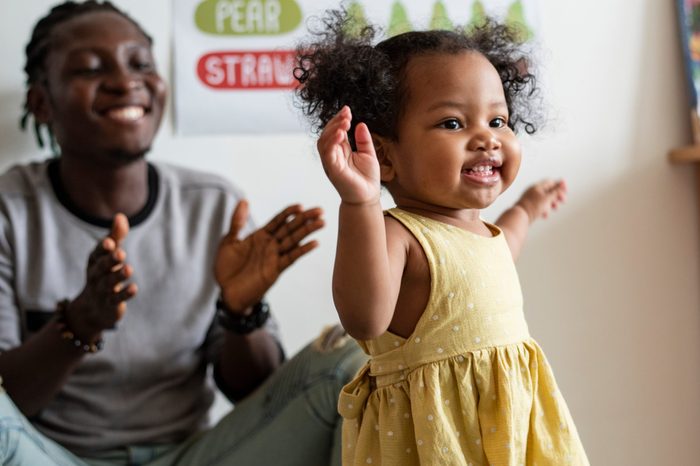
And you may as well not have your own name
How often have you been referred to in relation to your older or younger sibling? Your parents gave you a name at birth, but typically you’re known as (insert name’s) little brother or sister or, even worse, so-and-so’s older brother or sister. It’s easy to have an identity crisis sometimes.
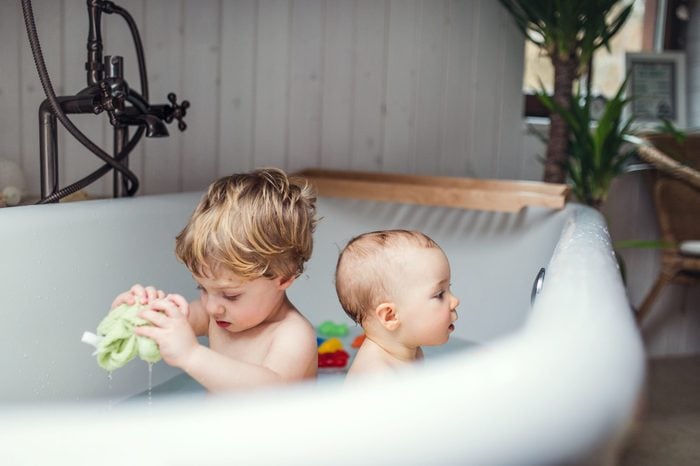
You never got your own room
Not only do middle children find themselves under a mountain of hand-me-downs, unless they’re living large (in a large house, that is), they tend to have to share a bedroom. Whether cohabitating with the older or younger sib, your space was never really your own.

But, hey, you don’t sweat the small stuff
Better than anyone, middle children know when to pick and choose their battles because they feel like their complaints get lost in the shuffle with mom and dad. Because of this, they have a more relaxed attitude about life in general. It all works out in the end anyway, right?
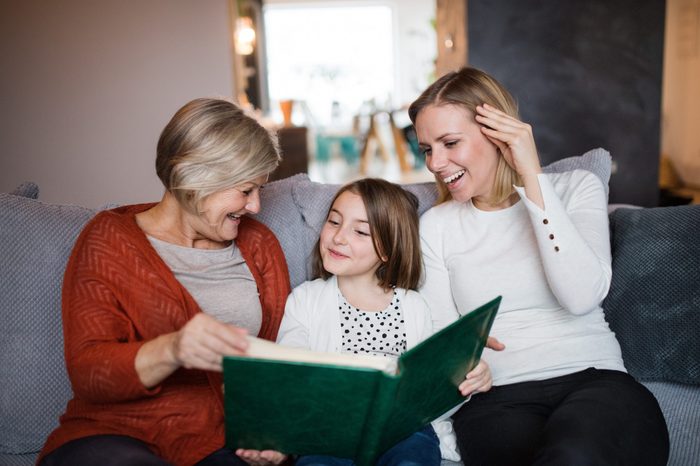
You know you’re the wisest in your family
Middle children are the only family members who get the life experience of being both a younger and older sibling, giving them unique perspectives on just about everything. Using this emotional knowledge to do good is pretty much the ultimate personal superpower.

You should have been awarded a “junior parent” badge
By the time the third kid comes around, mom and dad are tired. Real tired. This means that as the middle sibling they often asked you to help out with the baby of the family. The oldest was always off doing their own thing, which left you in charge of the little guy or gal. It was basically a crash course in parenting at an early age. And you probably already knew these are the 6 worst things parents can say to kids.

You have a flair for the dramatic
Although you had to go with the flow from an early age (or learn to as the years progressed), there were times when—gosh darn it—you needed to make your voice heard. For this reason, middle children have to develop a sense of drama to create a sense of urgency for mom and dad. But you were wise enough to know you couldn’t employ this tact all of the time.
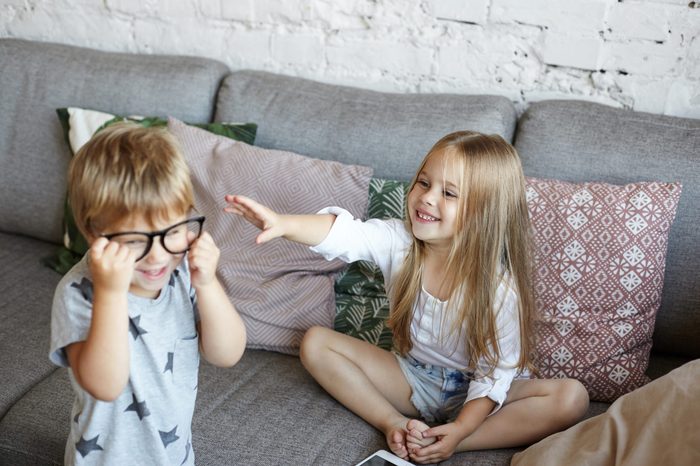
The blame was always placed on you
Middle children can easily speak to the phenomenon that they get lost in the family shuffle except for when it’s time to blame someone for something—anything! All of a sudden fingers are pointed at you from the oldest and the youngest. Sometimes mom and dad picked up on it and sometimes they didn’t. The frustration was very real. Sibling rivalry is a real thing, but here’s how to stop it before it starts.

You know how to work a room
Seeing as middle children are rarely alone, they have plenty of opportunities to work on their social skills. Put a middle child in a room full of strangers and they can handle themselves with aplomb. No wonder why you’re so successful. There’s nary a person you can’t schmooze.
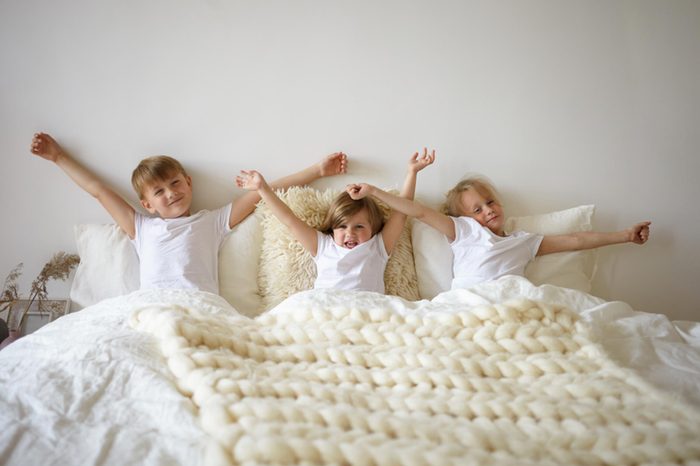
You hated The Brady Bunch
Thanks to Jan Brady’s cry of “Marcia, Marcia, Marcia!” middle children are often thought of as lonely and neglected, and are sometimes even pitied. After all, they’re the only birth order position that has a “syndrome” named after it. But these misconceptions made you angry growing up because they didn’t really represent who you are. “Sometimes when people find out you’re a middle child, the instant response is that something is wrong with you,” says middler Erin Greenspan. “I heard about someone recently who doesn’t want three kids because they felt bad making anyone a middle child. But I think we need middle children in the world!” Read on to find out why.

You didn’t have the pressure of the oldest child
Let’s face it: Parents don’t have a clue what they’re doing with their first child, and they tend to put all their hopes and dreams on the poor kid. Luckily, you didn’t have to face that particular battle. By the time the second child rolled around, your parents were more experienced and confident, and they passed this self-assurance on to you. Here’s more about what your birth order really reveals about you.
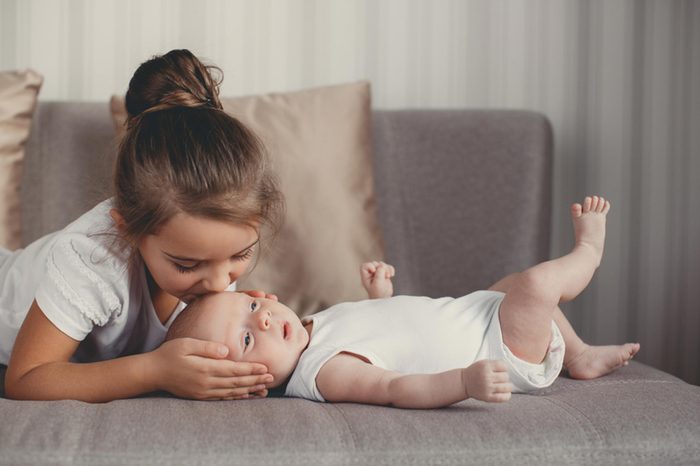
But you didn’t get the slack given to the baby either
With the last child, parents tend to indulge. They’re too tired to really enforce the rules, and they also want to spoil the youngest because they know it’s their last chance. So although you could often escape your parents’ notice, when you got caught you were held up to the same rules and standards of your older sibling, while you’re younger sibling could do whatever he or she wanted right in your parents’ faces. As Full House‘s middle child Stephanie Tanner would say, “How rude!”

You were like a fly on the wall
Growing up, your parents weren’t hyper-focused on you like they were on your older sibling, and you didn’t have the extra attention that the coddled youngest got either. Instead, you were always just there, quietly observing the drama unfolding around you. Perhaps that’s why middlers can be great writers—middle-borns Charlotte and Emily Brontë, Ernest Hemingway, Louisa May Alcott, and her fictional Little Women character Jo March were all celebrated authors. You took it all in, and then used it to your advantage.
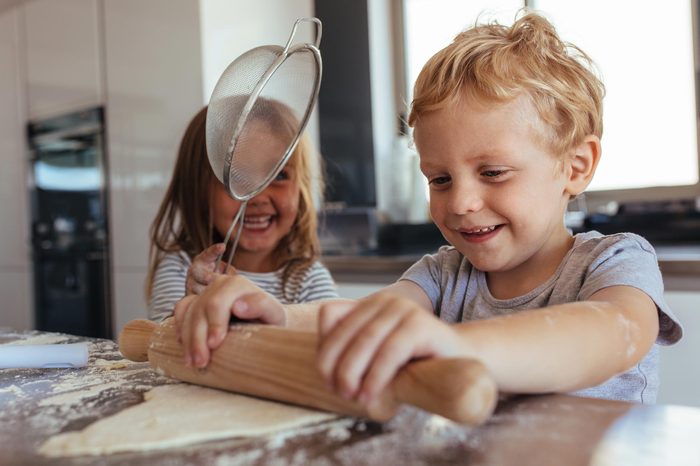
You could get away with more
The less attention you were given wasn’t necessarily a bad thing—it let you explore and discover your world in your own way, and usually prevented you from getting in trouble for doing so because your parents didn’t even notice! “I think a middle child can fly under the radar,” says middle child Andrea Smarrelli. “I was very adept at hiding my crazy moments and childish mistakes from my family.” From harboring a frog in your room to sneaking out at night, you could get away with a lot.
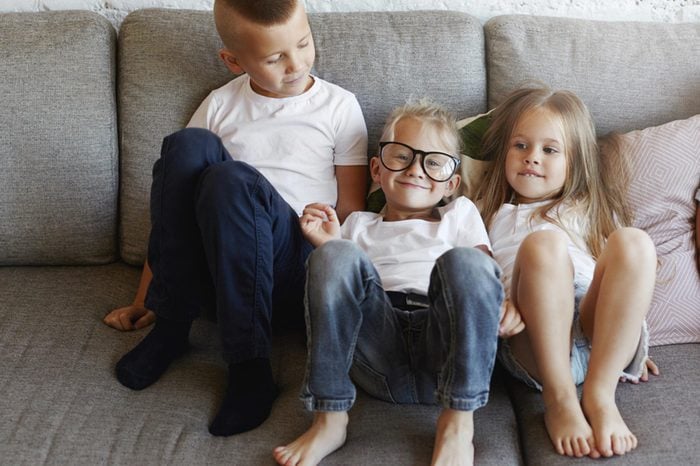
But to get the attention you had to stand out
Although it was often a boon for you not to have your parents’ full focus, when you actually wanted it you had to find a special way to be different from your siblings. So you probably got very good at figuring out how to be unique and came up with your own crazy style. After all, there’s a reason why superstars Madonna, Britney Spears, and Jennifer Lopez are all middle children. Find out more bizarre ways your siblings affect you as a grown-up.
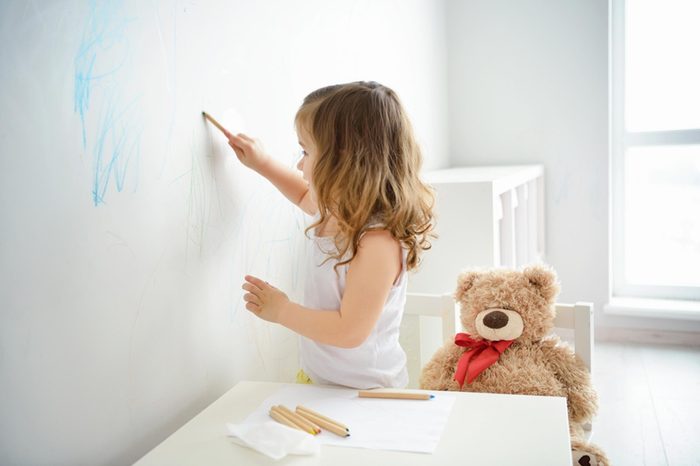
You tended to be creative…
This standing-outness might not have manifested in becoming a great performer, but you developed your originality in some way. Without super-high expectations from your parents, you were allowed to think outside the box, leading you to become creative in artistic, entrepreneurial, or STEM activities. It’s no wonder Microsoft founder and innovator Bill Gates is a middle child. “Middle-borns are agents of change in business, politics, and science—more so than first-borns or last-borns,” writes Catherine Salmon, PhD, and Katrin Schumann in their book The Secret Power of Middle Children.

…And independent
From about the age of 3, you could get up, make your own breakfast, and be out exploring the backyard by 8 a.m. Your mom and dad might have helicopter-parented their first-born and babied their last, but you were left to fend for yourself. This unintentional parenting strategy led you to develop a healthy sense of self-reliance and independence. You could always make your own fun and were capable of doing things yourself from an early age. Find out the 7 proven reasons middle child syndrome isn’t real.
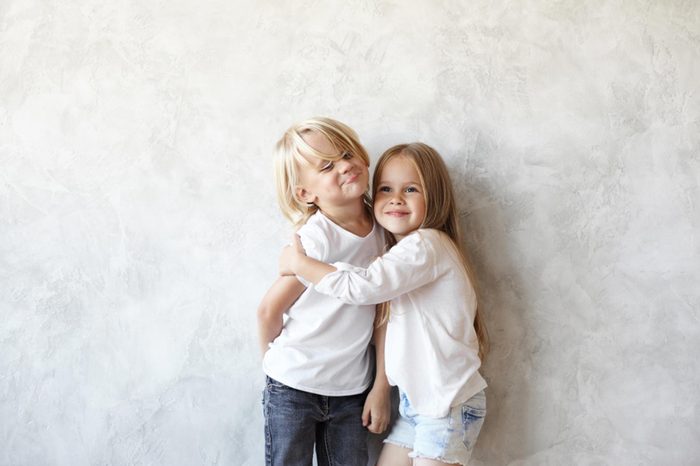
You learned to be the peacemaker
You were constantly having to be the go-between your siblings, so you figured how to compromise and negotiate to maintain the status quo. “I think we’re uniquely able to navigate complex social situations, and are often great listeners and peacemakers,” Greenspan says. Because negotiation is a key (and often overlooked) skill of great leaders, it’s perhaps not surprising that 52 percent of U.S. presidents were middle-borns, according to Salmon and Schumann. Find out the smart ways to stop sibling rivalry before it starts.
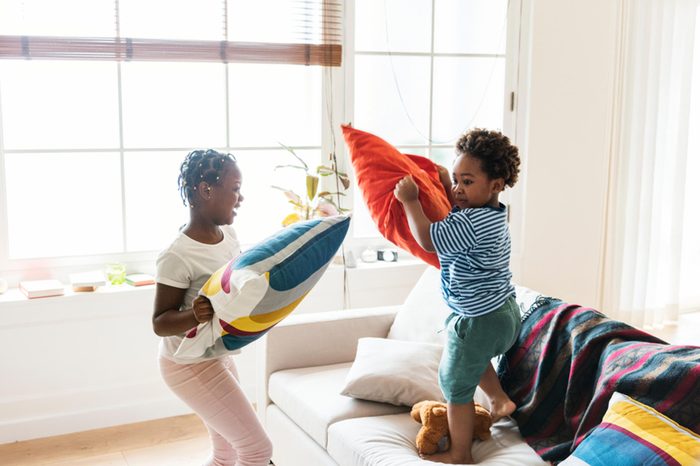
Justice was important to you
You pictured yourself as the judge in Kiddie Court, dispensing justice to your siblings. Fairness also became tops on your list of concerns in order for you to get what you deserved. “I feel like I really understand and appreciate different viewpoints because I know what it’s like to be both weak and powerful,” Greenspan says. “I think it has contributed to my tendency to be empathetic—and maybe part of why I’m a therapist!” That could also be why Nelson Mandela, Susan B. Anthony, and Martin Luther King, Jr., were all middle children. Here are more famous people you didn’t know are middle children.

You projected an image of responsibility
Sneaky you! Because of your capability and sense of justice (and because you were able to hide your riskier exploits), you got a reputation in your family for being reliable and trustworthy. “My older sister got attention for pushing boundaries, and my little sister got attention for being the baby,” Smarrelli says. “I was the ‘responsible one’ and liked the attention I got for that.” Greenspan says she was also the responsible sibling in her family.

Your friends were everything
Because of your sometimes overlooked position in the family, you made your own close circle of friends. if your family wasn’t going to give you all the attention you craved, you decided to find it elsewhere. But this branching out served you well, as you learned social skills, fierce loyalty, and the ability to form successful relationships. “In one of our studies, we found that 80 percent of middle-borns remain faithful to their partners, compared to 65 percent of first-borns, and just 53 percent of last-borns,” Schumann wrote in the Daily Mail.
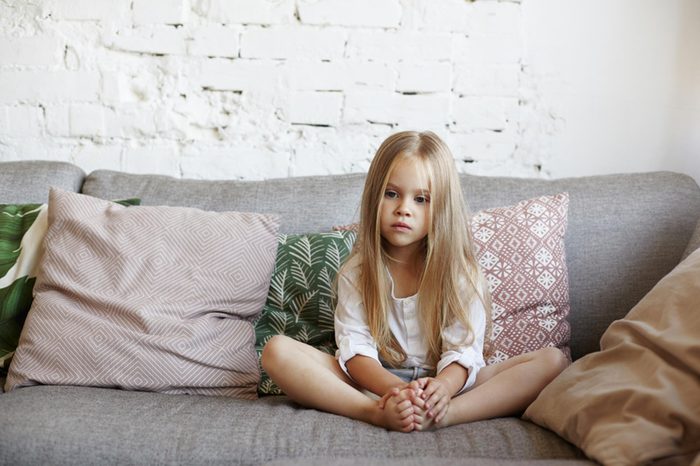
It sometimes seemed like no one cared
Although you liked the freedom your birth order brought, you sometimes secretly wondered why your parents let you do what you want. Especially if your family had more than three children, sharing the middle made you feel like just one more kid to get lost in the shuffle. Check out the skills you learn growing up in a big family.
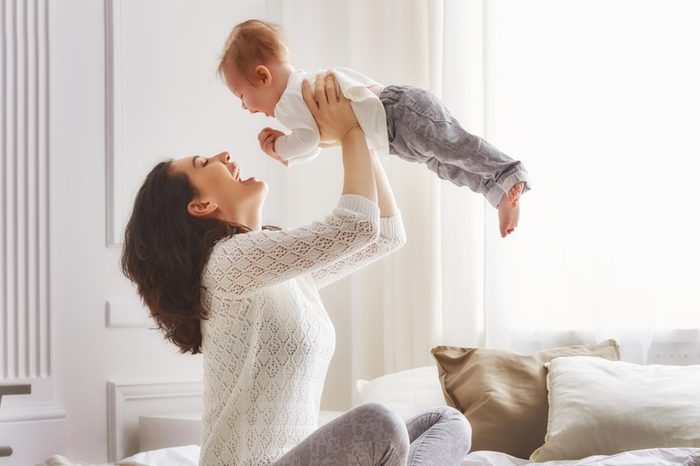
You know how it feels to be replaced
You and your older sibling both experienced the shock of having your place usurped. But the oldest maintained their choice position as first-born—they probably even got a T-shirt reading “big brother” or “big sister” when you were born. When your younger sibling came along, though, you found yourself going from the status of “baby in the family” to the unenviable position of middler, without a T-shirt in sight.
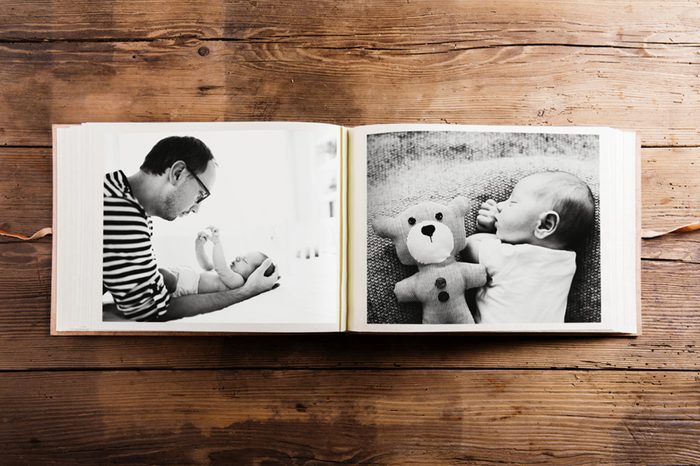
You felt cheated out of baby photos and clothes
While the oldest had baby pictures galore, you probably discovered that there were very few taken of you—and then your parents had a resurgence of nostalgia with the youngest and pulled out the camera again (after all, it was their last time to experience those moments). And you probably never had your own clothes either, just hand-me-downs—but by the time you were done with them they were worn out, so your youngest sib got to have new ones. Remember middle child Ron Weasley’s old dress robes in Harry Potter? Eek!
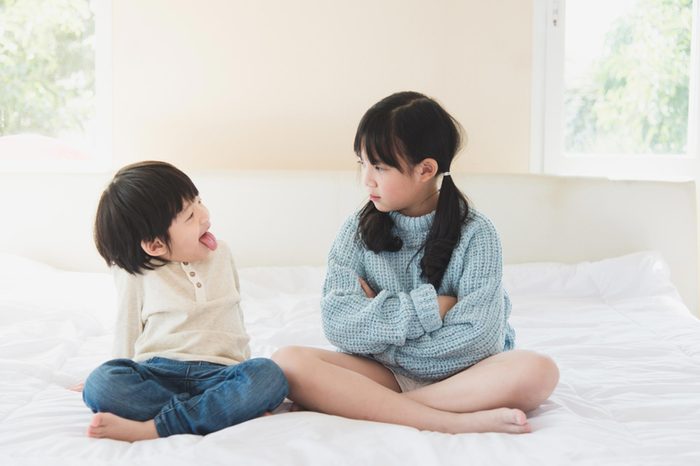
You had to be flexible
You wanted to hang out with the older kids, but you were also sometimes tasked with entertaining the little one. Pulled by the more grown-up world of your older sib and the still-playing-with-dolls world of the younger, you learned to adapt to different situations and just go with the flow. “Because they’re both outgoing and flexible, they tend to deal well with others—in the workplace and at home,” Salmon and Schumann write of middle kids. Find out ways to become BFFs with your siblings as grown-ups.
